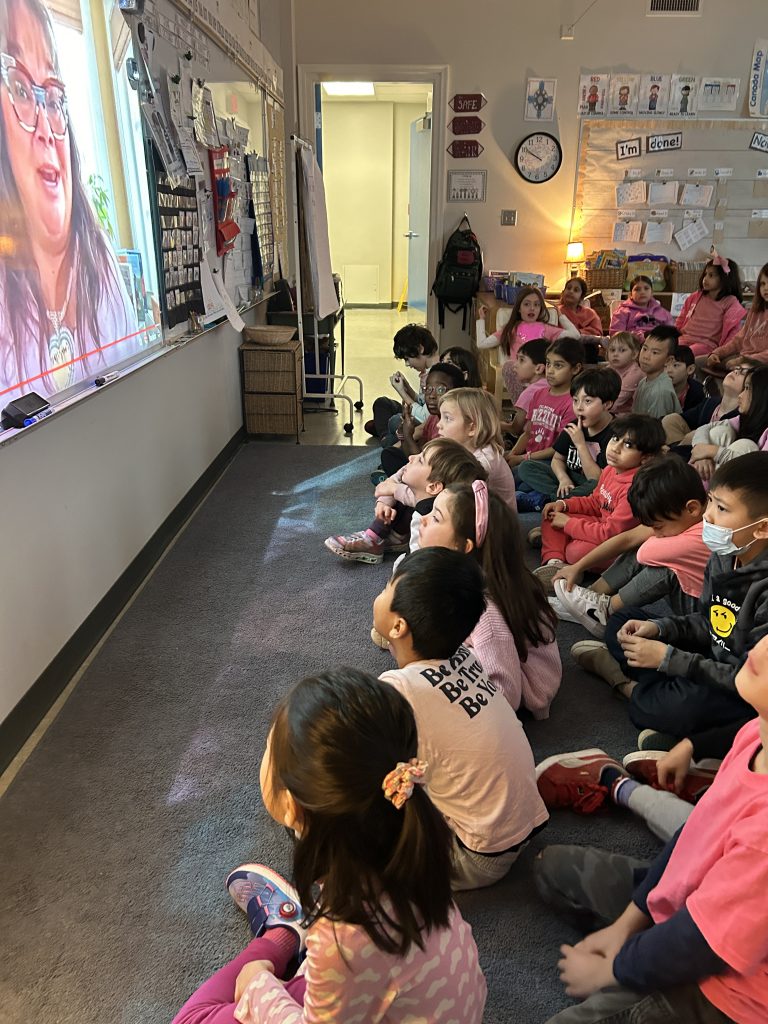Last week we learned about Pink Shirt Day including this year’s theme: “All Kinds of Kindness”. Here we our in our sea of pink! For the past two weeks we have been reading books that focus on the concepts of love and kindness.
On Tuesday, Ms Papapanagiotou read us a book that was perfect for Pink Shirt Day called They’re So Flamboyant, by Michael Genhart and Tony Neal. I am attaching the link so that you can read and discuss it with your child. After we read the book, we designed our own personal flamingos and how we would want to look if we were a flamboyant flamingo. We then worked on writing about whether the students have ever had someone make a judgement about them or someone they know, or whether they have stood up for someone instead. This activity allowed us to reflect on the concept of kindness and what it means to be an inclusive and responsible member in our school community. We were able to connect with one another by sharing our own experiences and discussing what it looks like to stand up for others. (They were put into journals)
On Wednesday, we had a zoom meeting with the author Monique Gray Smith, a Cree writer who lives in Victoria and has written many children’s books. She shared two of her stories for Pink Shirt Day. The first was called, You Hold Me Up and the second was called, When We Are Kind. She talked about the importance of showing others kindness every day of the year. She taught us a word in Cree: tawaw, which means: welcome, there is room for you here! Words to live by! I am attaching a copy of her book You Hold Me Up to share at home.
On Thursday, we heard the true story about how Pink Shirt Day started in Nova Scotia. We then read the story called Pink Is For Boys, by Robb Pearlman and Eda Kaban. Below is the link for this story as well. Please share it at home as a family, to increase understanding of what we have been learning here at school.
I’m also attaching a picture of us watching the zoom author visit.
Big Ideas:
- Creative expression develops our unique identity and voice (Art).
- Healthy communities recognize and respect the diversity of individuals (Social Studies).
First Peoples Principles of Learning: Learning ultimately supports the well-being of the self, the family, the community, the land, the spirits, and the ancestors
Curricular Competencies: Explore personal experience, community, and culture through arts activities
Content:
- Elements of design – line, shape, texture, colour
- Personal and collective responsibility associated with creating, experiencing, or sharing in a safe learning environment
Core Competency: Social Awareness and Responsibility
- I can build relationships and be a thoughtful and supportive friend. I can identify ways my actions and the actions of others affect my community.

Leave a Reply